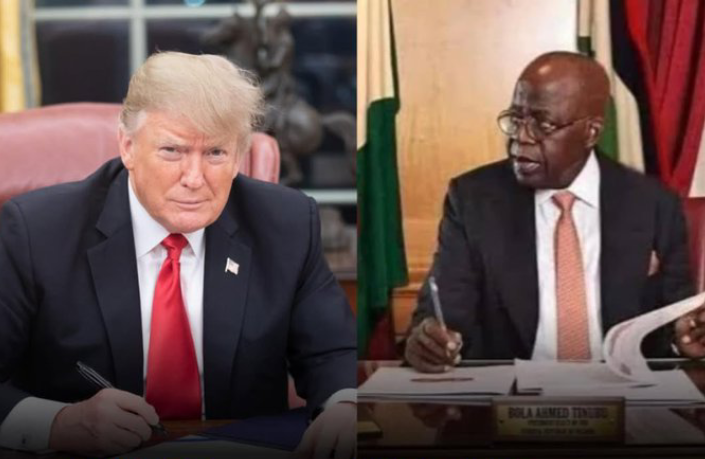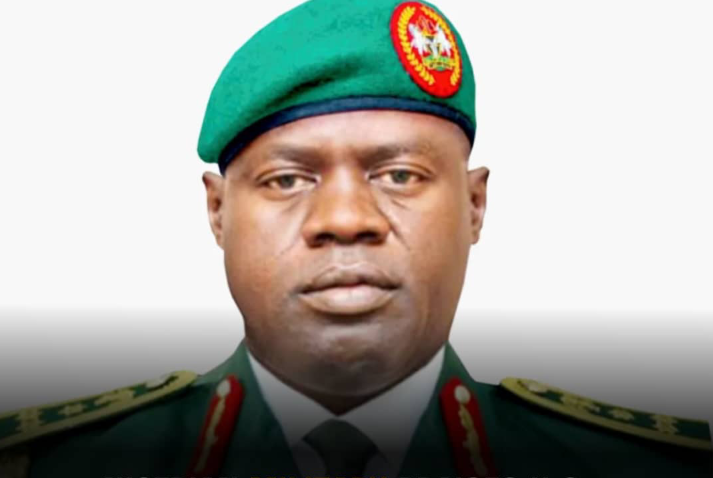
Tensions Ease as Nigerian Government Confirms Diplomatic Talks with U.S. Following Trump’s Military Threat

In a development that has gripped both local and international attention, Nigerians have begun to heave a collective sigh of relief after the Federal Government confirmed that diplomatic discussions are underway with the United States, following alarming comments by U.S. President Donald Trump hinting at possible military action. The atmosphere of uncertainty that had clouded the nation’s political space since the statement was made is beginning to clear, as the government assures citizens that all measures are being taken to preserve Nigeria’s sovereignty and maintain friendly relations with the U.S.
The reassurance came through the Minister of Information and National Orientation, Mohammed Idris, who in an interview with Sky News disclosed that the government had opened formal communication channels with Washington. Idris stated that the goal of these talks is to clarify misunderstandings and diffuse tensions arising from what he described as “a lack of proper understanding” of Nigeria’s security complexities.
“Channels of communication have been opened. I can confirm that we are talking with them, and I think they are understanding the situation better,” the minister said calmly, attempting to quell the growing anxiety. “We believe that most of the information is a result of a lack of proper understanding of the diversity and complexity of the problem we have at hand.”
President Trump’s comments, which reportedly suggested that the U.S. was considering military measures over what he termed “worrisome instability” in Nigeria, sent shockwaves across diplomatic circles. Although the White House has not officially released details clarifying the statement, it was enough to trigger widespread discussions on social media and among policy analysts about what such a move could mean for Nigeria–U.S. relations.
In the days following Trump’s remark, Nigerians at home and abroad expressed deep concern, with many interpreting the comment as an unnecessary provocation. However, the Federal Government’s swift diplomatic response appears to have calmed nerves, as officials continue to emphasize dialogue and mutual understanding.
Minister Idris further explained that the security situation in Nigeria, though challenging, has often been misrepresented by foreign observers unfamiliar with the country’s unique social and political dynamics. “Nigeria has not lost any territory to Boko Haram,” he asserted, countering claims of a deteriorating security situation. “The fight against insurgency in Nigeria cannot be compared to traditional warfare; it is asymmetrical, complex, and deeply intertwined with socio-economic realities.”
He added that the government remains firmly in control of the situation and continues to collaborate with international partners on intelligence sharing, counterterrorism training, and humanitarian interventions in the affected regions. His remarks were intended to assure both domestic and foreign audiences that Nigeria’s sovereignty is not in jeopardy and that the government is capable of managing its internal affairs without external military interference.
However, Idris did not shy away from pointing fingers at certain groups he accused of fueling misrepresentations abroad. According to him, some proscribed separatist organizations have been working with U.S.-based lobby groups to distort Nigeria’s security narrative. “It is unfortunate that some individuals and organizations with vested interests have chosen to malign their own country by feeding foreign powers with inaccurate information,” the minister said. “These narratives are often amplified by lobbyists in Washington who do not fully understand the realities on the ground.”
His comments appear to be a subtle reference to ongoing activities by separatist movements that have long sought international recognition and intervention. Over the years, these groups have reportedly funded campaigns in the United States and Europe, seeking to portray Nigeria as a failed state incapable of protecting its citizens or upholding democratic principles. Idris’s remarks, therefore, hint at a broader diplomatic challenge that extends beyond the recent exchange with the U.S. President — the battle over international perception.
Within Nigeria, reactions to the government’s confirmation of talks have been mixed. While many citizens expressed relief that the situation is being handled diplomatically, others questioned why the issue escalated to such a sensitive level in the first place. On social media platforms like X (formerly Twitter) and Facebook, political commentators and citizens alike debated whether Trump’s comments were a misunderstanding or a deliberate show of power.
Some users praised the Nigerian government’s quick response, describing it as “mature diplomacy,” while others viewed it as a wake-up call for the administration to strengthen its international image and transparency. “This should serve as a lesson,” one political analyst wrote online. “Nigeria must take control of its global narrative. If you don’t tell your own story, others will tell it for you — and not always kindly.”
Meanwhile, the international community is watching the situation closely. Diplomats and observers have noted that this is not the first time a U.S. president’s offhand remark has sparked diplomatic unease. Nonetheless, analysts agree that the existing partnership between Nigeria and the United States — which spans decades of cooperation in trade, education, health, and security — is strong enough to withstand such tensions.
At the moment, there are no indications that Washington intends to escalate matters beyond diplomatic engagement. In fact, sources close to the Ministry of Foreign Affairs suggest that the U.S. Embassy in Abuja has been in regular communication with Nigerian officials to ensure that both sides maintain clarity and avoid misunderstandings that could jeopardize bilateral relations.
Observers also point out that Nigeria remains one of the United States’ key strategic partners in Africa, particularly in counterterrorism and regional stability. A military confrontation or public fallout between the two nations would not only be diplomatically damaging but also counterproductive for both sides.
For many Nigerians, the ongoing talks represent a reassuring reminder that dialogue remains the most powerful tool in international relations. “War or military threats are never the answer,” said a Lagos-based political science lecturer. “The U.S. must understand Nigeria’s complex realities, and Nigeria must also communicate more effectively with the global community. This kind of tension should be resolved through conversation, not confrontation.”
As of now, no official statement has been released by the U.S. government confirming the details of the talks. However, Minister Idris’s confidence that the matter is “being understood better” suggests that progress is being made behind closed doors. Nigerians, still recovering from the shock of Trump’s words, can only hope that these diplomatic discussions will restore calm and reaffirm Nigeria’s position as a sovereign nation committed to peace, partnership, and stability.
While the dust continues to settle, one thing is clear — this episode has once again highlighted how fragile global perceptions can be and how critical it is for nations like Nigeria to proactively manage their diplomatic image. For now, the country breathes a cautious sigh of relief as diplomacy takes center stage and the threat of conflict gradually gives way to communication and understanding.


